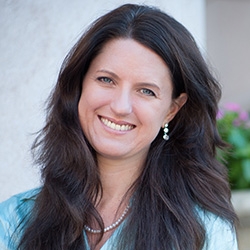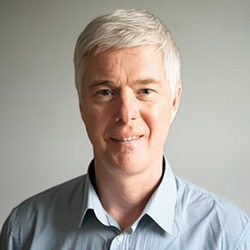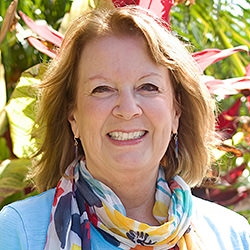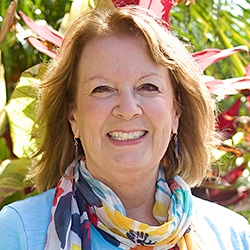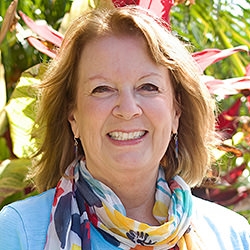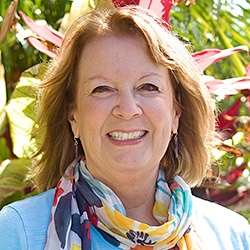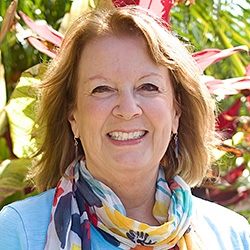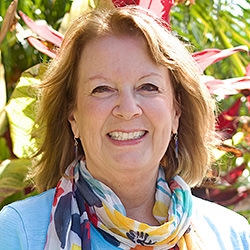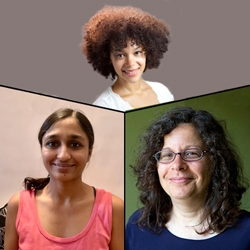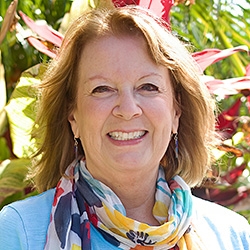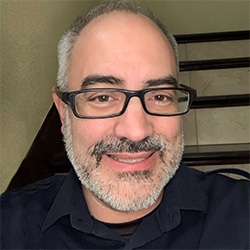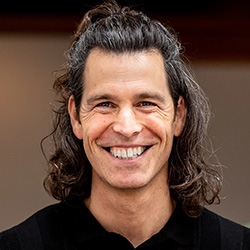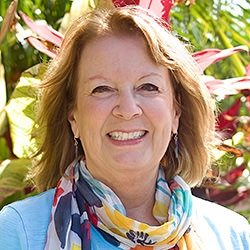

Search Results: feelings
-
Yvette Erasmus shares Terry Real's grid as a tool for exploring a spectrum of emotional responses. We all have feelings and sometimes we get dysregulated or frozen up. How do you want to express and be in connection with other people? Can you attune to the relational context that you are in?
-
We live in a world where there is a lot of anger. It can be a strong and intense emotion that we feel or receive from others sometimes on a daily basis. Whether that's an agitated partner, road rage, or a disgruntled colleague. While we're familiar with this feeling, we're not necessarily well equipped with how to express it in a healthy way. In this month's Life Hack, Shantigarbha takes us through a guided reflection on anger.
-
- Discover what is yours to do in response to our growing global crises
- Weave nonviolence more deeply into how you live and lead
- Receive ongoing support within and beyond the course in how to be effective and alive while doing what’s yours to do
- Increase your capacity to face and mourn current reality as a source of greater choice and energy
- Be a part of transforming the legacy of scarcity, separation, and powerlessness into a livable future
-
Last year, I planted my vegetable garden in February. It was an enormous amount of work to get it ready. This year, we decided to move the garden farther away from trees (to avoid the ongoing tree root issue and allow more sun). So, we created 4 new beds. Now, they are ready to be planted, and yet… forward momentum has stalled.
-
Trainer Tip: People struggle to come to agreement when they don’t feel heard. So as a mediator, facilitate the process by asking all parties to reflect the essence of what's important to other parties. This is critical. Once everyone is confident that their needs have been heard, you'll notice the energy in the room relaxing. Then you can brainstorm strategies that will value everyone’s needs, and are focused on what they want to happen.
-
The season is changing. What have you done to nurture yourself these past several months? It has been summer in my part of the world and moving into fall.
-
- Hear from four respected NVC trainers offering heartfelt insights and real-life strategies
- Connect with others seeking compassion, courage, and meaningful action
- Attend as a gift — pay what you can to support NVC Academy
- Discover simple, practical tools to stay grounded, clear, and empowered—no matter what’s happening in the world!
-
Using his own life experience, Eric explores why we need support from others, what support might look like, and what blocks us from asking for support for our relationships.
-
Trainer Tip: On a scale of 1 to 10, how is your emotional bank account? If it’s lower than you like, consider what you can do right now to bring it closer to balance. Everyone in your life, and most especially you, will benefit from this. Even 15 mins of empathy may nourish you with accompaniment and perspective, even when the issues or circumstances in your life are the same.
-
Trainer Tip: When we express appreciation using words like "good", "great" or anything else evaluative, it conveys we are in the position to judge, and that we've judged them or their actions. Instead, to express appreciation without judgment state what they did, how you feel about what they did, and which of your needs are met by their behavior. Such an expression of appreciation clearly states how your life was enriched, without judgement.
-
It is 5:30 in the morning. I am sitting in a medical facility waiting for my wife, Kim, who has just gone in for a minor surgical procedure. I have only had a couple of hours of sleep and I can barely keep my eyes open. I am not very worried, but am a little worried about Kim. The kind of worry that happens to me when anyone I love (human or animal) is put “under” anesthesia.
-
For many, the word “need” is associated with lack, neediness, and scarcity. These associations are the opposite of the meaning of needs in Nonviolent Communication (NVC). In NVC, needs are the motivational energy of our innate wholeness and desire to grow, like the energy of a plant pushing it up through the soil and toward the sun.
-
- Explore the complexities of how we can care for all of life using NVC
- See the role that power plays in relation to observations, feelings, needs, and requests
- Learn how to support people from many backgrounds in being able to apply NVC
- Discern how to engage with these vast topics as we learn and share NVC
-
Trainer Tip: Here are four Stages of Emotional Maturity, also known as Stages of Emotional Liberation. Be aware of what stage of emotional maturity you are in today. And, celebrate it.
-
Mismanaged emotional pain can compound and hurt ourselves and others. Four ways we can mismanage pain are: denial, blame, depression, and escape/numbing. This can result in hatred, resentment, discrimination, revenge, anger, and more problems. The fifth way we can deal with pain is to confront the pain acknowledging it and dealing with our unmet needs. This is a more direct path. Read on for more ideas for how to handle the pain.
-
Whether its pandemics, climate change, damage to the environment or other massive challenges that humanity faces, what are we to do if we can't agree on even the most basic information and knowledge? From empathic understanding we can focus on shared, universal human needs (where there is no conflict or disagreement) underlying our perceptions, and feelings. Then we can see if there are ways we can agree on to meet those needs.
-
- Learn how to use empathy to dissolve conflict
- Deepen your NVC skills to help let go of judgments
- Explore approaches for asking for what you want
- Listen to the conflict within yourself
-
Trainer Tip: We have four choices of how to respond to someone, even when they say things that are hard to hear. We can blame the speaker, blame ourselves, we can self empathize by acknowledging our feelings and needs, or we can empathize with the other person's feelings and needs. Be aware of these options and consciously make your choice based on the needs you want to meet.
-
- Connect the dots between NVC basic practices and the deeper "why" behind them
- Discover how NVC can support us in bringing tenderness to all of humanity
- Learn how to tie the NVC approach to liberation and vision
- Explore the many ways the tools of NVC support the path of liberation!
-
Along with it’s potential for helping others calm their emotions and feel deeply understood, the Nonviolent Communication process of empathetic listening can help someone increase their capacity for finding their own truth.

Quick Links
Subscription Preferences
Stay In Touch!
Looking for ways to keep up with NVC Academy news, get special offers, free resources, or words of inspiration? Here are five ways to stay engaged:

